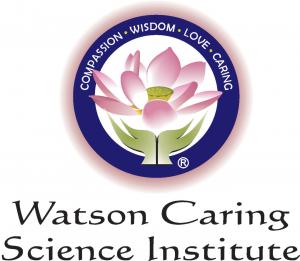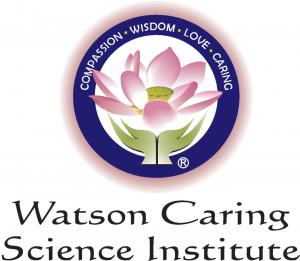Watson Caring Science Institute Dr. Jean Watson Treating nursing as 'just a job' harms both nurses and patients. New approaches reduce burnout, impro

Watson Caring Science Institute

Dr. Jean Watson
Treating nursing as ‘just a job’ harms both nurses and patients. New approaches reduce burnout, improve care, and challenge the victim narrative.
DEERFIELD BEACH, FL, UNITED STATES, January 21, 2024 /EINPresswire.com/ — Caring and nursing are, at their core, the same thing. Nurses, who make up nearly half of the global health workforce, provide millions of people with the compassion foundational to medicine. Unsurprisingly, caring for humanity is no easy task. Underfunded, overworked and exhausted: those are the adjectives many would use to describe the world’s nearly 27 million nurses. After decades of increasing demand, cemented by a pandemic, it might be hard to imagine anything different. Take a step back and focus on the highly skilled act of caring, however, and we can see that nurses are anything but victims.
How can nurses reclaim their power when they work in systems that treat them like robots? The simple answer: they can’t. Reducing nursing to ‘just a job’ rather than a gratifying profession strips nurses and patients of their humanity and leads to the dehumanizing working conditions that nurses have become aligned with. Hospitals that have trailed alternative nursing theories, however, found that burnout and secondary trauma reduced among staff, and that patient perceptions of their care were improved. By taking a different approach, nurses clearly don’t have to be the ‘victims’ they’re so often made out to be.
‘Caring science’ is a human solution to the problems facing modern nurses. Nursing professor and theorist Jean Watson’s theory of Caring Science offers an alternative to systematic medical models. Her theory places people and their authentic interactions at the Centre of nursing. The crux of the theory, as she puts it, is that “humans cannot be treated as objects and that humans cannot be separated from self, other, nature, and the larger workforce”.
Figure 1: Dr Jean WatsonWatson first developed her caring theory in 1979; over the next decades she developed ten “Caritas Process” as a guide to nursing and established the Watson Caring Science Institute, a nursing NGO non-profit based in Florida. Watson’s 10 Carititas Processes® direct nurses to respect the subjective experiences of the people they care for by honoring their own human dimensions. Living and working by these principles gives nurses the option to develop their caring practice not just as a medical authority, but as a human being too. Now more and more blue chip hospitals, called ‘WCSI Affiliates’ throughout the US are using Watson’s theory as their professional practice model. Results are evidentially reducing staff turnover, and patient care improvement. Nurses feel valued and want to stay.
Figure 1: Dr Jean Watson
The benefits of caring science
More respectful and holistic patient care
Watson’s Caring Science rejects the idea that health is just a physical metric. Instead, it takes a holistic approach to the mind, body and energy of the whole human being. Watson’s theory stresses the importance of the relationship between nurse and patient; by protecting patient dignity, and not reducing them to an object to be cured, nurses can understand a person’s subjective and individual heath situation. Watson’s Caring Science’s definition of a person’s basic needs encompasses the mind, body, heart and soul, in line with the long understood connection between mental and physical health. Taking a holistic, individual approach protects and enhances the patient’s sense of self, dignity, and care experience.
More mindful nursing
Watson’s Caring Science insists that nurses are most able to care for a person’s mental, physical, and social needs when they are aware of their own consciousness. Being present while caring not only allows nurses to examine the nuances of their patient, but allows both people to connect deeply in that moment. In Watson’s words, ‘we have this beautiful ability to be authentically present, so that we can support and enable the faith, hope and belief system of the other person, and work from their frame of reference, not ours’. Nurses are also empowered by remaining mindful throughout a caring interaction, as they can connect with their own thoughts and feelings, rather than simply fulfilling the medical task at hand. ‘These practices’, Watson highlights, ‘are to do with giving love and kindness and compassion to ourselves first, so that we can offer love and kindness and compassion to others”.
Self-development through introspective nursing
Watson’s Caring Science emphasizes that, in order to connect authentically with others and hold space for their healing, nurses should develop their own spiritual systems. By learning from and with each person they treated, nurses can hone their skills and develop their own unique caring practices. Practicing caring theory empowers nurses to master their skills by being authentically present during every patient encounter. Nurses deal with the existential and spiritual questions around life and death everyday – Watson’s Caring Science encourages them to develop their own spiritual practices and engage with other people’s interworlds.
If you’re a health worker beginning to practice a Caring Theory, you might realize that you’ve been caring out the Caritas Processes for years already. Acknowledging, documenting, and sharing these processes with your colleges can guide you to develop your informed moral practice even further.
In 2022, The American Association of Colleges of Nursing has announced a pilot scheme addressing learning strategies to build leadership and resilience skills in new nurses Watson and her faculty are working with the 10 pilot Nursing Schools – three who use Watson’s Caring Theory to weave in the Caritas Processes supporting quality learning and caring throughout the educational ‘New Essentials’. The scheme aims to teach students and faculty alike to “foster personal health, resilience, and well-being, as well as strong leadership skills”. In times as tumultuous as these, it’s become clear that teaching nurses these essential skills cannot be done through rigid, robotic systems. To embrace nurses as the leaders and innovators they are, new nursing theories must be used.
For more information about Watson’s Caring Science, please visit: watsoncaringscience.org. If you’re interested in developing you’re own caritas practice, the online Caritas Coach Educational Program®, with contact hours awarded by the American Holistic Nurses Association, is a great place to connect with other nurses and develop your practice.
Julie Watson
Watson Caring Science Institute
+1 561-460-0187
julie@watsoncaringscience.org
Visit us on social media:
Facebook
LinkedIn
Instagram
YouTube
Other
![]()
